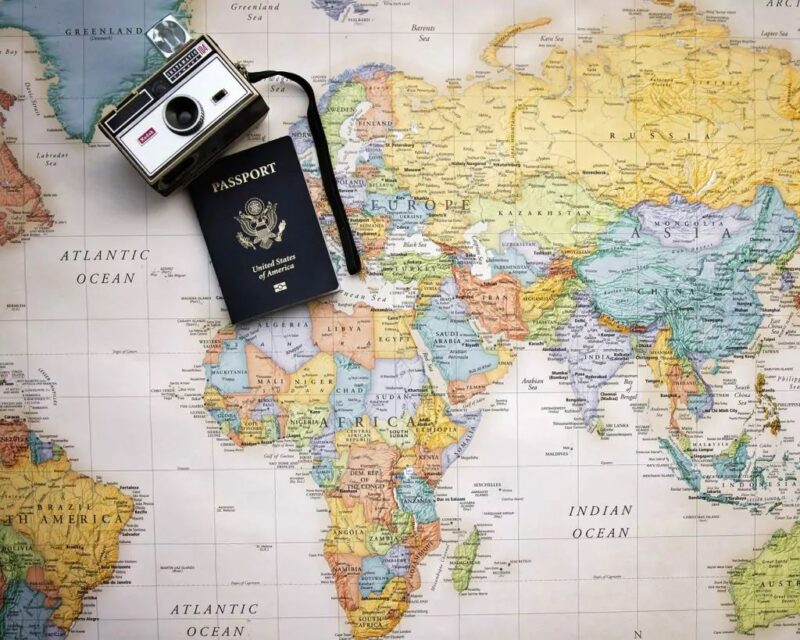Europe, a tapestry of diverse cultures, breathtaking landscapes, and rich history, has captivated travelers for centuries. If you’re ready to embark on your own European odyssey, careful planning is key to an unforgettable experience. This guide delves beyond the typical planning tips, offering insights that will elevate your trip to the next level.
-
Define Your Travel Style and Goals
- Introspection: Before choosing destinations, ask yourself: Am I a culture vulture, an adventure seeker, a foodie, or a mix? Do I prefer bustling cities or quaint villages? What kind of pace suits me?
- Inspiration: Browse travel blogs, social media, and guidebooks. Note destinations and experiences that spark your wanderlust.
- Be Realistic: Consider your budget, time constraints, and personal travel preferences. Europe is vast, so focus is essential.

-
Choosing Where and When to Go
- Popularity vs. Hidden Gems: Weigh the allure of iconic destinations like Paris or Rome against less-crowded gems offering authentic experiences.
- Seasonality: Shoulder seasons (spring and fall) often provide pleasant weather, fewer crowds, and better pricing. Summer brings festivals and lively energy but higher costs. Winter offers unique charms like Christmas markets.
- Research Events: Check local calendars for festivals, concerts, or sporting events that align with your interests and might influence where you go.
-
Budgeting: Break It Down
- Major Expenses: Flights, accommodation, transportation (trains, ferries, etc.), and entry fees to major attractions.
- Variable Costs: Meals, local transport, souvenirs, and activities.
- Hidden Costs: Travel insurance, visas (if needed), data roaming, and currency exchange fees.
- Budgeting Tools: Use apps or spreadsheets to track estimated and actual expenses. This allows for flexibility and adjustment along the way.
-
Transportation: More Than Just Flights
- Open-Jaw Flights: Consider flying into one city and out of another to save time and avoid backtracking.
- Train Travel: Europe’s extensive rail network is efficient and scenic. Rail passes like Eurail can be cost-effective for multi-country trips.
- Budget Airlines: Take advantage of Europe’s many budget airlines for quick hops between destinations. Be mindful of baggage fees and airport location.
- Local Transit: Familiarize yourself with metro systems, buses, and trams in major cities. Purchase multi-day passes for savings.
-
Accommodation: Beyond Standard Hotels
- Location, Location, Location: Opt for central locations for easy sightseeing, even if slightly pricier. Consider neighborhoods that fit your vibe.
- Hostels: Great for budget travelers and meeting like-minded people. Private rooms are often available.
- Vacation Rentals: Ideal for families and longer stays, offering more space and kitchen facilities.
- Boutique Hotels: Seek properties that reflect local character and add a unique touch to your trip.
-
Packing Smart and Light
- Versatility is Key: Choose clothing that can be mixed and matched. Focus on neutral colors and pack a few statement pieces for variety.
- Layers: Be prepared for fluctuating weather with layers you can easily add or remove.
- Comfortable Shoes: Europe is best explored on foot; prioritize comfortable, stylish walking shoes.
- Adapters and Converters: Double-check the outlet types and voltage requirements for your destinations.
- The “Just in Case” Kit: Include basic medication, mini toiletries, and a compact umbrella.
-
Practicalities and Staying Connected
- Visas and Passports: Verify entry requirements and ensure your passport has ample validity (usually at least six months beyond your trip).
- Currency Exchange: Research the best rates and avoid exchanging large amounts at airports.
- Data Plans: Consider a local SIM card or international roaming plan to stay connected. Many public spaces offer free Wi-Fi.
- Safety: Be aware of your surroundings. Research common scams and keep valuables secure.
-
Embracing the Unexpected
- Spontaneity: Leave some room in your itinerary for serendipitous discoveries. Ask locals for recommendations on restaurants, shops, or lesser-known sights.
- Slow Down: Don’t try to cram too much into each day. Pick a few highlights, and savor the moments in between.
- Get lost (purposefully): Wander off the beaten path. You just might stumble upon your favorite European memories.
- Learn Basic Phrases: Knowing a few words in the local language shows respect and opens doors.
Remember, the best trips are a blend of careful preparation and flexibility!

